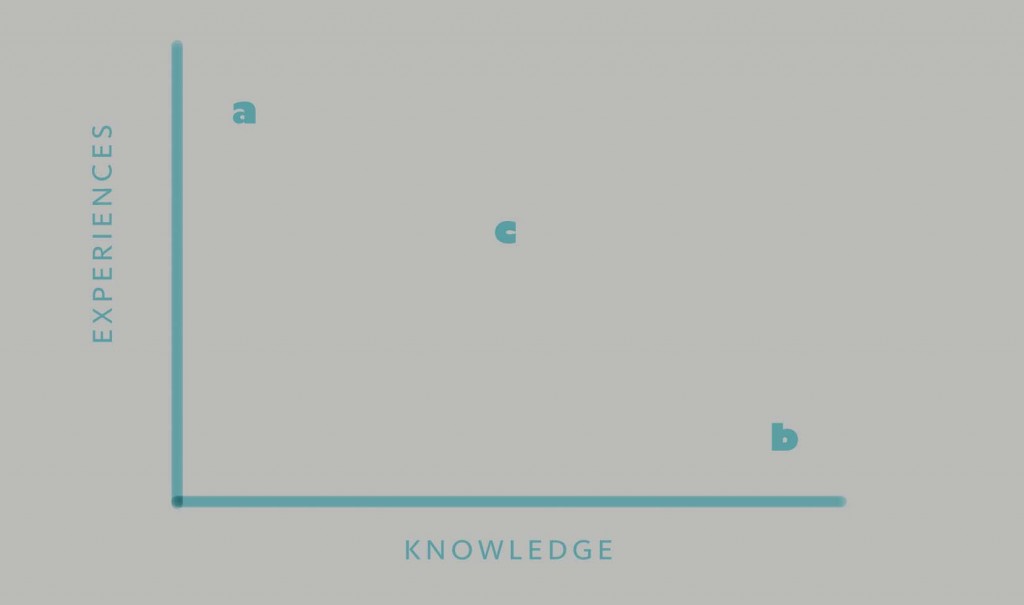How do you know when someone is ready to be apart of the change you seek to make?
I’ve been around my kids a lot more in the last two months and the one word that comes to mind when I watch them is TOLERANCE–there is a clear point when they either receive too much (TV, Music) or too little stimulation (alone time) and instantly behave in a manner to change their situation.
A great question to ask as you think about leading change around you is: Who can tolerate the changes I’m trusting God to make?
A helpful way to understand tolerance is the combination of knowledge and experiences.
Here’s my quick and dirty tolerance chart:
Point A describes the “Brute Beast” that has experiences that have prepared him/her for being apart of change, but not a lot of skill to execute that change well.
Point B describes the “Philosopher” who because of a vast amount of knowledge can intellectually grasp where you need to go, but lacks the character and internal fortitude to lead with you.
Point C describes the “Change Agent” who has the right blend of experiences and knowledge to not only lead the changes you want to make but bring people along with them, thus changing the entire culture.
A few reflections from working with A’s, B’s, and C’s:
- A’s often get passed over at first but over time have the greatest potential to become change agents.
- B’s are a huge time and energy drain because they can make leaders feel insecure by their knowledge and aloofness, yet never produce any fruit that leads to redemptive change.
- C’s are less than 10% of most ministries/churches/etc–but if empowered and developed end up setting the tone for the entire group.
- B’s need experiences to become aligned to leading change and a’s need knowledge–there cannot be a one size fits all mentality for developing leaders.
Have you noticed any similar trends in your spheres of influence or ministry context? Any words of wisdom to share?


I like it.
Though for “B’s” you mentioned that they are who they are because of a vast amount of experiences, but then your recommendation for them at the end is that they get experiences. I’m assuming you’re talking about specific experiences that lead to alignment, but maybe that could use more fleshing out.
I think this is on the money for the most part. The real change agents maybe are the “warrior poets” who demonstrate legitimate courage and ethos in community, while at the same time having wisdom and sensitivity to people and the art of community.
I think there are “D’s” too – people that have no real courage and they have no real capacity to think about what they’re doing either. “D” would be an appropriate letter I would think. If they happen to be ministers, they’re picking up a paycheck by doing what their manual tells them to do. If they are a student, they’re there for the refreshments.
dude thanks for catching the typo–i changed it to read “knowledge” re the philosopher.
here’s a really interesting dynamic that i’m seeing play out rather often:
“A” followers surrounded by “B” leaders
the a’s often get frustrated because they have the internal ability to make the changes, but lack the skills to do it in a way that pleases the b leader–then since c’s intuitively or intentionally stay away from ministry cultures like these there is this awful stalemate btw the a’s and b’s.
thanks for the thoughts bv!